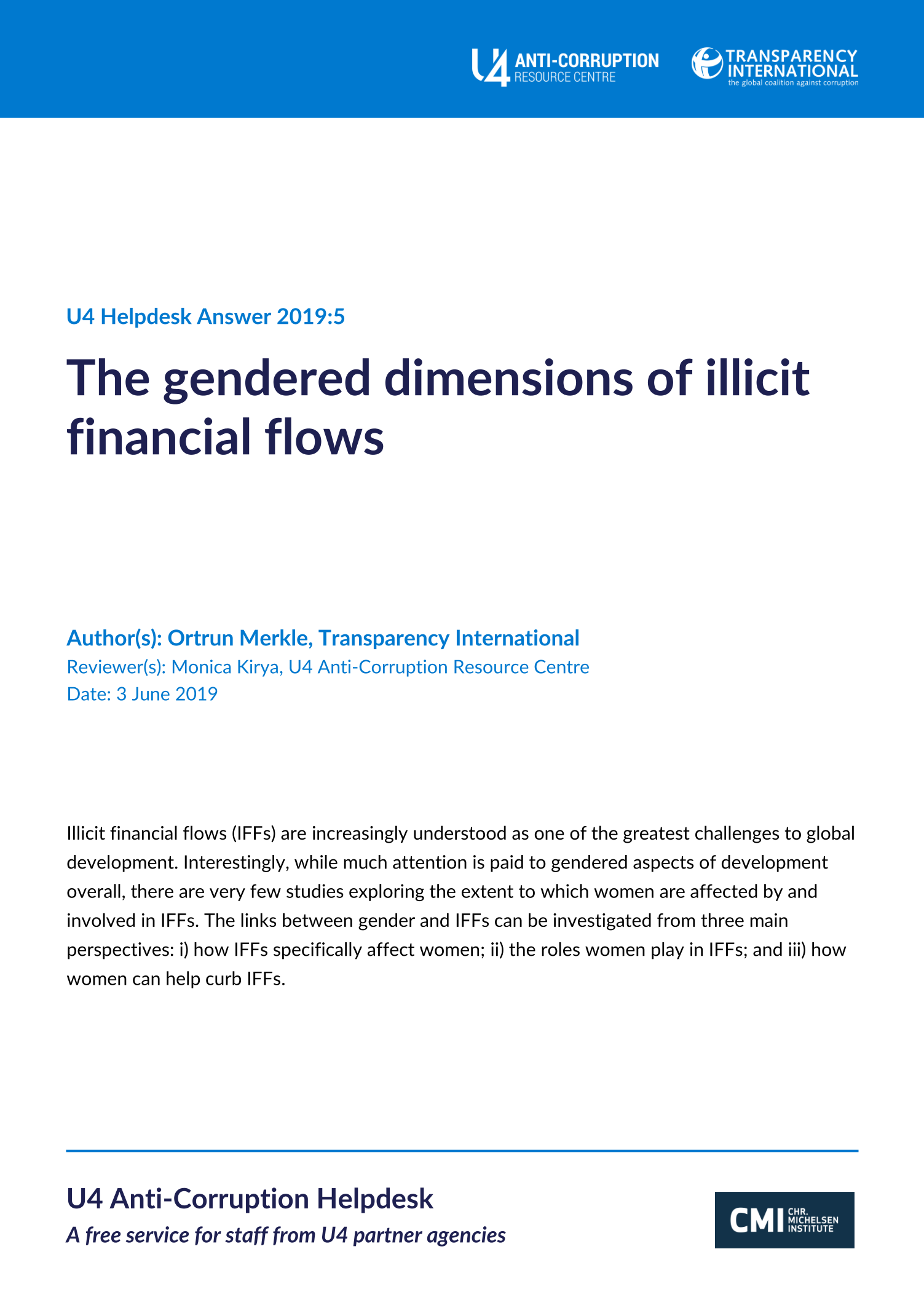Main points
- IFFs reduce public resources available for service provision and programmes focused on gender equality. This disproportionally affects women.
- To make up for money lost to IFFs, states frequently levy consumption taxes which also put a disproportionate burden on women.
- Women and men are also differently affected by the sources of IFF, particularly corruption and human trafficking.
- The question of how women participate in IFFs needs further research. While studies show that women are less likely to condone corruption, tax evasion and crime, examples show that there are women who play prominent roles in all these illicit acts.
- Women’s role in countering IFFs has not been explored in much detail. Yet, it is well known that women can play an important role to counter corruption, which is an important element of reducing IFFs.


